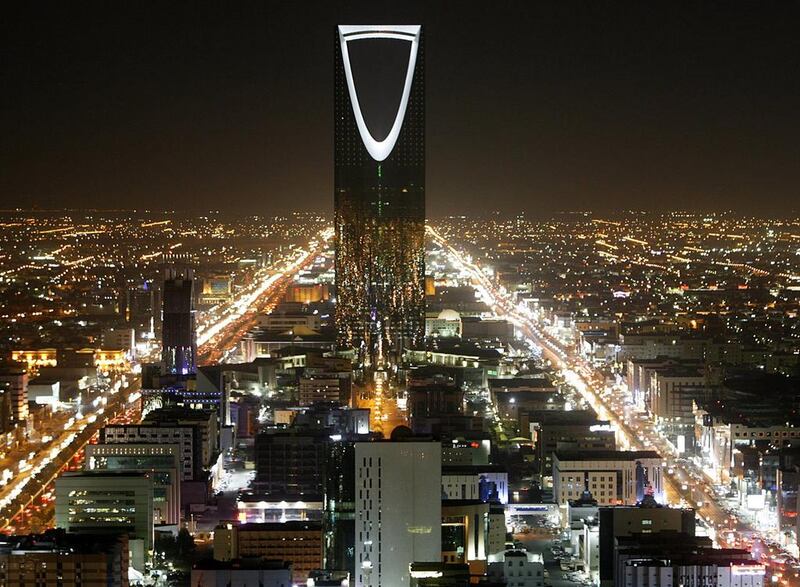Saudi Arabia is a step closer to unlocking billions of dollars in foreign direct investments (FDI) for public-private projects, improving transparency and boosting its construction sector while easing pressure on government finances.
A draft law to regulate partnerships between the government and public sector published on Sunday will help to attract investments for mega-infrastructure projects in utilities, transport and real estate, analysts said.
"This is a definite positive for the privatisation process," said James Reeve, chief economist at Samba Financial Group. "Its primary objective is to offer assurance to private investors, particularly foreign ones, that any investments they make in private-public partnerships will be clearly and transparently regulated."
In a wide-reaching plan to wean its economy off oil, Saudi aims to generate 35 billion Saudi riyals (Dh34.27bn) to 40bn riyals in non-oil revenues from a privatisation programme by 2020 and create up to 12,000 jobs. The programme targets 14 public-private partnership (PPP) investments worth 24bn riyals to 28bn riyals. The kingdom also plans to raise about $200bn through privatisation in coming years as part of its “Vision 2030” to diversify the economy. Privatisation efforts will include both sale of assets, and private companies investing in public infrastructure projects.
The draft law, which is open to public comment for three weeks before being passed at an unspecified date, outlined investor exemptions from some labour laws and real estate ownership limits. While the kingdom has emphasised the importance of PPP financing for infrastructure projects, PPP regulation had been lagging.
"There is finally a legal framework within which companies can operate under PPP contracts, which wasn't established before," said Mohamed Abdelmeguid, Mideast analyst at Economist Intelligence Unit. "Saudi's needs for infrastructure development under the Vision 2030 are huge, so the law goes some way to unlocking financing and foreign participation."
More pension funds and sovereign wealth funds will be interested in the long-term lending opportunities that will become increasingly available with PPP projects, said Nahed Taher, president of National Standard Finance, which oversees $2 trillion in assets.
_______________
Read more:
Saudi foreign reserves to rise thanks to privatisation, inclusion in emerging market indexes
IMF commends Saudi Arabia on 'good progress' on implementing Vision 2030
_______________
The proposed law will particularly boost real estate investments, in affordable housing, social infrastructure such as schools and hospitals, as well as public infrastructure like airports and railways, said Craig Plumb, head of Mena research at JLL.
"There is huge potential for PPP in infrastructure and the main constraint was a lack of law governing this area," he said. "The draft law takes away that constraint and should boost investments in real estate."
The power sector, both conventional and renewable, schools, health and education are set to benefit from PPP structures, analysts said.
Saudi Arabia's construction sector, which has slowed in previous quarters, will benefit as the law will ease investor concerns about transparency and increases confidence, said Mazen Al Sudairi, head of research at Rajhi Capital.
The draft law provides assurances that private investors will be able to recover losses "incurred as a result of any change in the Law or unlawful action or the failure of public authorities to take an action which they should have taken, which caused loss to the Private Party", it states. There will also be an appeals committee formed to adjudicate disputes.
The draft also acknowledges that there will be some exemptions on labour laws about the "appropriate ranges for national employment". This suggests companies may be exempted from meeting the minimum quote of hiring Saudi nationals, which is a key concern for private investors on keeping labour costs down.
"The long-term health of the economy - and sustainable employment prospects - depend on attracting foreign investments," Mr Reeve said.
In the long run, the flow of FDI will also be boosted with technology transfer and training to enhance nationals' competitiveness and skills.
In terms of real estate law exemptions, the draft states that non-Saudis may own property in the kingdom except for the cities of Makkah and Medina. Real estate may be leased within those two cities for a period spanning the term of any PPP contract, it states.







